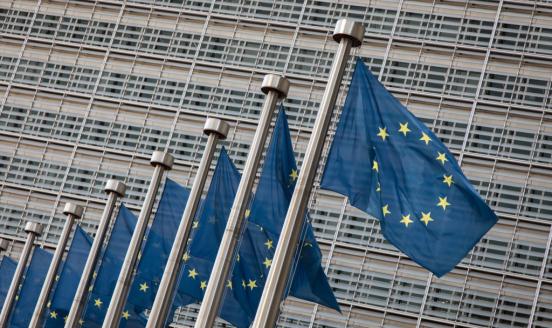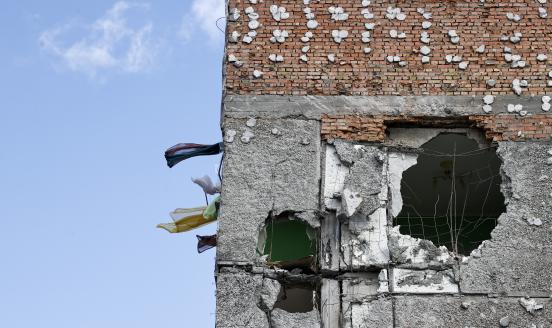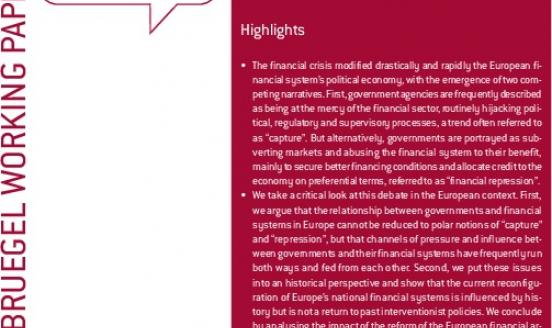The Weekender
Dear All, I’m writing these lines from Paris where European Social democratic parties held a big pow wow on Friday and Saturday. It was a very inter
Dear All,
I’m writing these lines from Paris where European Social democratic parties held a big pow wow on Friday and Saturday. It was a very interesting opportunity to get a better sense of Hollande’s European plans. He is still well ahead in the polls for the second round but his advance is shrinking fast.
Meanwhile I will focus on:
- Hollande’s European strategy
- Some conjectures on global rebalancing
1. Hollande’s European strategy
Francois Hollande appears emboldened by a growing support for his call on a renegotiation of the fiscal compact. This is clearly visible amongst the social democratic parties in Europe but he also takes the Spanish and Dutch fiscal targets negotiations as well as the letter to the Council by David Cameron and others as a sign that he could even get support amongst conservative parties for a bolder agenda on growth.
He is probably right on substance but the confrontational renegotiation strategy could undermine his effort. I believe that he would be far more successful if he chose a rhetoric that proposes a complement to the fiscal compact rather than a substitute.
What he has called a Pact for Responsibility, Governance and Growth would revolve around:
- Bigger investment by the European Investment (this will certainly require additional capital injection because there is a limit to the degree to which the EIB can grow its balance sheet and keep it AAA rating).
- Reform and increase of the structural/cohesion funds, which have proven insufficient and ill-targeted.
- Better use and broadening of the European Globalization Adjustment Fund, which assists workers affected by profound and disruptive economic changes in their countries.
- Concrete steps towards Project Bonds, already proposed by the European Commission, a form of joint a severally guaranteed bonds to finance supranational projects and infrastructures.
- The introduction of a proper Financial Transaction Tax to back of these initiatives.
But his European intentions are primarily focused on supporting the economy in the current downturn but few proposals have real far reaching or medium-term consequences. If one is prepared to use so much political capital to renegotiate a treaty, it might be as well be used to make substantial breakthrough which I believe should include:
a) Make steps towards a Banking Union and make the financial Sector more crisis-proof by the following:
- Abolishing national guarantees of deposits and set up a supranational Guarantees of deposits for up to 100k euros across the euro area
- Set up a supranational Banking resolution authority that would have the authority to resolve transnational banking failures through restructuring, merger and eventually bankruptcy. This requires limited financial contribution but an ex-ante commitment to abandon these decisions to a supranational institution
b) Make Steps Towards a budgetary Union (a word he not only managed to avoid in his 1 hour long speech but also one he suggested impossible by stressing that the Bundestag was Constitutionally sovereign over budget matters and so should be other parliaments)
- Strengthen the pre-budget governance aspects (instead of the ex-post sanction) by strengthening the European semesters and forcing greater fiscal convergence.
- Lay out a path and a timetable for the introduction of Eurobonds (starting with eurobills as a pilot project)
c) Resolve private sector imbalances and competitiveness through:
- Press the ESRB to effectively address divergent growth in national monetary aggregates in order to limit future private sector imbalances and bubbles
- Reinforce monitoring of national wages and social benefits negotiations so as to make sure that national reforms do not fuel internal imbalances (ex. Synchronizing VAT hike in Germany (2009) and France (2012) would have reduced ULC divergence over this period between the two countries).
- Hollande (and whoever is the next president in fact) should show that he has a clear economic vision of where Europe needs to go and not only an immediate concern for managing the cycle in the best possible way. He would bolster his credibility and have more chance of success if he manages to articulate his short-term concerns with a medium term vision.
2. Some conjectures on global rebalancing
It is striking how the debate on global rebalancing has faded in the last year. It used to be the primary source of concern and debate at the G20 and has now fallen into the background. There are 2 reasons for that, one is that the European crisis has taken precedence; the other is that global imbalances that looked so deeply entrenched are receding generally faster than we thought. In fact, the Current Account deficit projections of the IMF for China for instance have been repeatedly off by a wide margin over the last few quarters.
Interestingly, there are a few reasons for this, which I think are a combination of cyclical and structural determinants. In the US, domestic demand is cyclically repressed by high unemployment and balance sheet adjustments but also structurally changing due to growing energy independence. In Japan, net trade will grow in deficit due to reconstruction efforts but will also structurally move to a deficit if Japan continues to replace nuclear energy by imported fossil fuels. In China, a relatively slow global recovery explains the poor performances of its exports but the economy is also structurally moving towards a more domestically driven growth.
In addition to this, financial globalization seems to be on the wane, which could challenge the financing of countries with extreme current account deficits. In addition, financial repression, renationalization of lending, limited cross border take-overs in the financial sector, macro-prudential policies or capital controls ought to restrict the growth in cross border financial.
These deep-seated changes could have two fundamental effects. On one hand, capital, which was flowing uphill from emerging economies to the US, could start to flow downhill as the US has less of a current account deficit to finance. This would be hugely important for emerging economies as financial flows to them would increase substantially — even to a point where it could be disruptive if the proper macro-prudential tools are not in place. For the world economy, this could also be very meaningful, as global savings would be put to work where they should have a better and more sustainable economic return.
In Europe, however, things were somewhat different. Financial flows were cascading downhill from the center (Germany, France…) to the periphery with some great success (CEE) and some bubbles (Greece, Spain, Ireland…). With the ongoing reversal, capital would start to flow uphill a mechanism we are observing now. If this phenomenon were to become more permanent in nature, it would undermine the idea of convergence (in terms of GDP per capita) and would substantially weaken the potential growth of Europe as a whole.
These are mere conjectures at this stage, but there are enough evidence to warn against a possible reversal of capital flows globally which could generally be beneficial for the world if well managed but the symmetric movement in Europe could largely undermine Europe’s growth potential.
Happy to have your thoughts as usual,
Best Regards,


